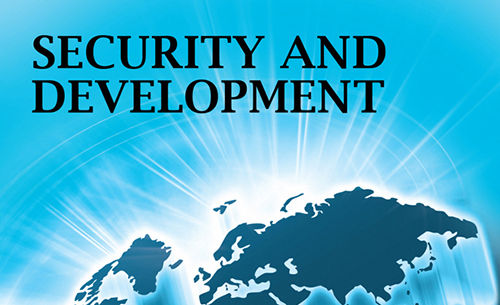
[ad_1]

There are four main pillars of sustainable human development. These are democracy, equity, social justice and sustainable economic development that reduces poverty. When the provision of physical security is weak, it impinges on, and can even destroy, the ability of societies to achieve sustainable human development. Regardless of whether the low level of security results from oppressive security forces, crime, terrorist threats, wars or deficiencies in the provision of security.
Among the causes of insecurity in a country, lack of democratic governance is both a major underlying factor and the result of physical insecurity and violence. Thus, democratic governance requires a legitimate, transparent, trustworthy and inclusive state that is accountable to all of its citizens. Whenever these are absent, public sector and civil society institutions responsible for resolving disputes over access to political and economic power will also be absent or become very weak to function.
This problem is compounded when the rule of law is weak and government and security sector accountability is weak or inadequate. The consequence is the creation of an environment where security forces operate with impunity in the political sphere, often leading to human rights violations and further undermining opportunities for strengthening political and civil freedoms. Furthermore, a lack of popular support for the state results in government by force, through its security forces, especially when the military sometimes takes over operations from the police or even from the government itself.
More importantly, when democratic space is closed or severely limited, the benefits of economic development are unequally shared among citizens. Whenever there is political, social and economic inequalities, it leads to resentment among groups, which allows leaders to mobilize one group against another. Thus, conflicts based on ethnicity or ideological beliefs are often the result of group mobilization under conditions of such horizontal inequalities.
The conclusion is that violence is not necessarily instituted by relatively poor people. The privileged do it too, with the fear of losing their place. This includes, for example, the prospect of a possible loss of political power by a ruling government, which can be a powerful motive for state-sponsored violence, in an attempt to suppress opposition and maintain power. This is done through the collapse of the financial backbone of opposition leaders, political prosecution of members of opposition parties, arrest and detention, blackmail, etc.
In such circumstances, a major humanitarian emergency is state terrorism, as the government has access to an organized force (police / military) which could be used to further undermine its own citizens and perpetuate the crime against them. This was the case, for example, in most major episodes of violence in Uganda, Haiti and during Iraq’s repression of the Kurds.
While security is so crucial to the well-being of all people and societies, it is too often the prerogative of small elite groups. It is not provided equally in many companies, but primarily to those who are already better off. At the same time, repression by security forces is more likely to affect those already disadvantaged and marginalized. It is evident that security forces often play a central role in regimes that maintain social and economic inequalities.
Moreover, security, in general, is the political arena where people have the least say. The institutions responsible for providing physical security and overseeing decisions about the size and conduct of these institutions are often very elitist. Secrecy, lack of transparency and accountability are characteristics of the security sector and by extension also generally go beyond to include other sectors of society such as the executive.
To achieve sustainable human development, all efforts must be made to achieve good governance, which, of course, means much more than democratization in the formal political sense. Another important thing to do is reform the public sector, including the security sector which should be subject to the same standards of efficiency, fairness and accountability as any other public institution. Reforming the security sector in a way that meets the needs of the population, and not just select elite groups, is essential for achieving sustainable human development. Indeed, the irresponsible damage that the security sector causes to the promotion of democracy, social justice, equity and sustainability, economic development reducing poverty make it a source of insecurity for the poor. and vulnerable people who undermine sustainable development.
By: Emmanuel F. Mantey (Executive Director)
Office for Conflict Management and Security in Africa
[email protected]
Source link